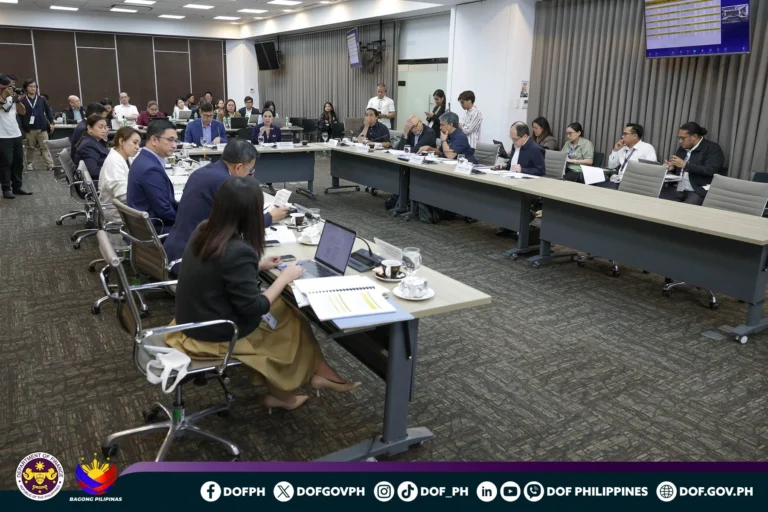Finance Secretary Carlos Dominguez III has underscored the need for the country’s workforce to adapt to technology-driven change in anticipation of new jobs that would require up-skilling workers to prevent them being out of work as a result of disruptive digital innovations.
Dominguez said that while new technologies “destroy” certain traditional jobs, such innovations also create new ones under what has been called the 4th industrial revolution.
Hence, he said, workers should be prepared for a future of continuous learning to remain relevant and productive in today’s world of disruptive technologies, and agreed with Asian Development Bank (ADB) president Takehiko Nakao that people need to be taught how to learn throughout their lives.
While new technologies should make governments be mindful of their risks, Dominguez said “we should not be paralyzed by them.”
“We should embrace innovation. We should look at the bright side, but again provide safety nets for those who cannot catch up all the time,” Dominguez said during the Governors’ Seminar as part of the activities of the 51st ADB Annual Meeting held last week in Mandaluyong City.
Dominguez, who chairs the ADB Board of Governors this year; Nakao; Indonesia Finance Minister Sri Mulyani Indrawati; Japan Deputy Prime Minister Taro Aso; and Fiji Finance Minister Aiyaz Sayed-Khaiyum, who was elected as the next chairman of the ADB Board of Governors for 2019, were the panelists in the seminar with the theme “Technological Change, Globalization, and Jobs in Asia.”
According to Dominguez, governments should deal with the impact of technology-driven progress on its labor force by encouraging the private sector, through the grant of incentives, to upgrade the knowledge and skills of workers.
Governments should also ensure that micro, small and medium enterprises (MSMEs) are able to take advantage of disruptive technologies by providing them with access to these new tools, such as faster internet connectivity that would enable them to transact business online or through cashless systems like the use of QR codes.
“I’m sure the government cannot do it all on its own,” he said. “We have to govern in a smarter way, we have to anticipate the potential problems, and we have to take necessary action. But again, we also have to encourage the private sector to share the burden here.”
Dominguez pointed out, for instance, that when he took over as finance secretary in 2016, he immediately sat down with leaders of the business process outsourcing (BPO) sector in the country to encourage them to retrain workers because “machine intelligence was just around the corner.”
Since that meeting, Dominguez said the BPO industry, which accounts for around 6 percent of the country’s GDP, has accelerated its training to upgrade workers’ skills so that they can move up the job value chain rather than remain stagnant in traditional BPO jobs of being call center agents, which could easily be replaced by automation.
Dominguez acknowledged that there are downsides to technology-driven change, “but I’m very hopeful that the human being is smart enough to mitigate those risks.”
In his earlier opening address at the Annual Meeting of the ADB Board of Governors, Dominguez said the Bank should help “future-proof” its member-countries against the sweeping impact of disruptive change by aiding them in harnessing the rapid advances in digital technologies to improve productivity and strengthen economies.
Being the region’s “main concourse of development ideas,” the ADB needs to develop the means to support its member-countries to prevent them “from falling into the wrong side of the digital divide,” said Dominguez.
Dominguez said ADB’s Strategy 2030 is a “good beginning” in meeting this challenge as it provides the institution with a roadmap that will not only let member-countries adjust to the new balance of power in the global economy, in which the Asia-Pacific is the center of gravity, but also help them cope with the enormous forces unleashed by new technologies.
The delegates to the 51st. Annual Meeting, which numbered over 4,000, includedfinance ministers and central bank governors of ADB member countries, bankers, representatives from the private sector, civil society, academe, multilateral institutions and the media.
Around 8,000 police officers were deployed to secure this high-level event, which included the ADB Governors’ sessions at the EDSA Shangri-La Hotel, and other meetings conducted at the ADB Headquarters in Mandaluyong City and in nearby hotels.
Anchored on the theme “Linking People and Economies for Inclusive Development,” among the issues discussed during the 51st meeting were globalization, technology and its impact on jobs and corresponding opportunities, private sector mobilization in funding infrastructure, building climate change resilience, expanding opportunities for women entrepreneurs, and using technology to maximize the skills of aging populations to make development inclusive.
ADB, which is based in Manila since its inception in 1966, is dedicated to reducing poverty in Asia and the Pacific through inclusive, environmentally sustainable growth and regional integration. Established in 1966, it is owned by 67 members, of which 48 are from the region.
-oOo-





